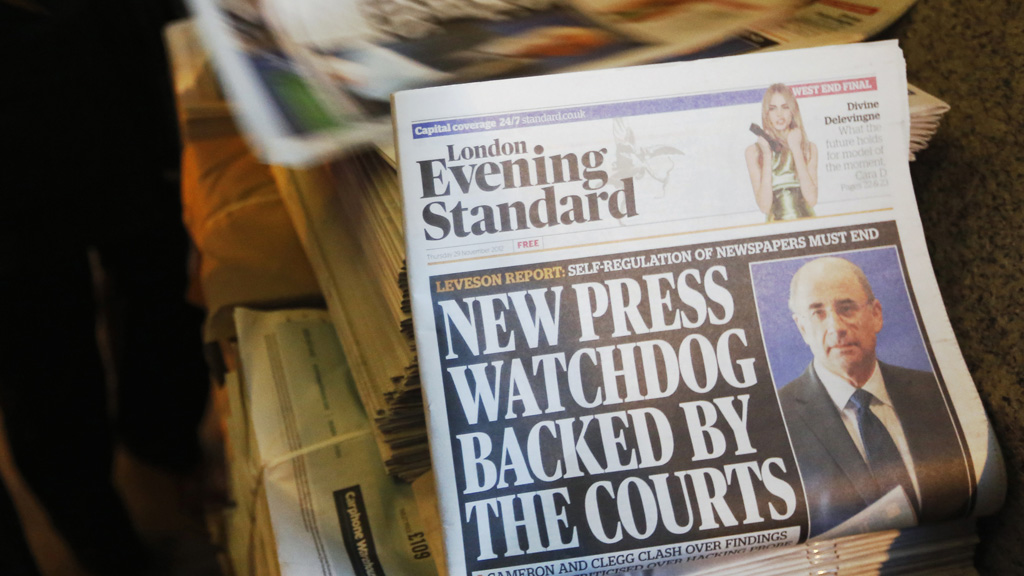Leveson: draft charter rejects statute-backed regulator
David Cameron has presented draft proposals for press regulation that reject Lord Justice Leveson’s recommendation of statutory backing.

The draft charter, published this afternoon, proposes a new press regulator that would monitor news websites as well as newspapers.
Instead of state legislation, it would be overseen by a “recognition panel” in charge of ensuring that the watchdog properly fulfilled its function. The panel would contain between four and eight people and could not include a current or former editor, nor senior figures from television or radio news.
To intervene, or not?
It came amid continued cross-party wrangling over whether to implement Lord Leveson’s regulations in full. The Conservatives insist that their proposal amounts to a “tough new system” of oversight without the need for state intervention.
The Tory plans were posted on the the Department of Culture website, but made clear they did “not reflect an agreed position between the Conservative and Liberal Democrat parties”. That became increasingly clear as some expressed their doubts on the proposals.
John Leech, the Lib Dem backbench culture spokesman, said: “Politicians and political parties went into all-party talks in good faith to try and come up with a solution that everyone was prepared to sign up to.
“Unfortunately, it looks like from what the Tories are now putting forward that consensus cannot possibly be met.
“There is an awful long way to go before we get to a situation where the government or the political parties in general could come to some sort of consensus.”
A line in the sand
Shadow culture secretary Harriet Harman said: “The problems with the proposals from the Conservatives today is that ministers could actually change them at any time and also they are open to being influenced and leant on by the press.
“But I think if they changed that then there might be a prospect of reaching agreement.”
Labour and the Liberal Democrats originally called for Lord Justice Leveson’s recommendations to be implemented in full, while Mr Cameron warned that such press law would “cross the Rubicon“. The latest round of talks between the parties begins on Thursday.
In a separate development, the Independent on Sunday Editor John Mullin is to leave the paper it has emerged, as the paper’s proprietor oversee a move to a seven-day operation that will encompass the Independent, the London Evening Standard and a yet-to-launch local TV channel entitled London Live.